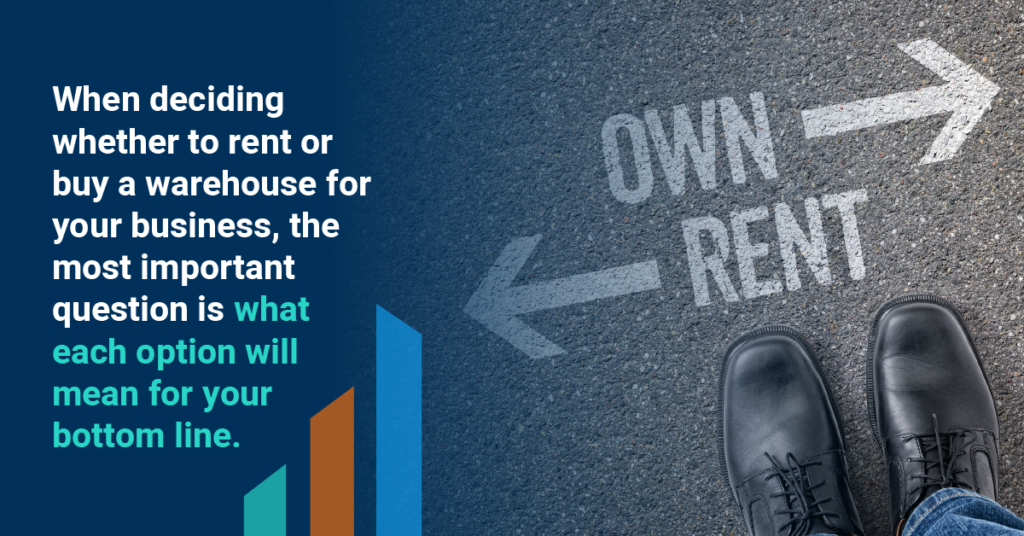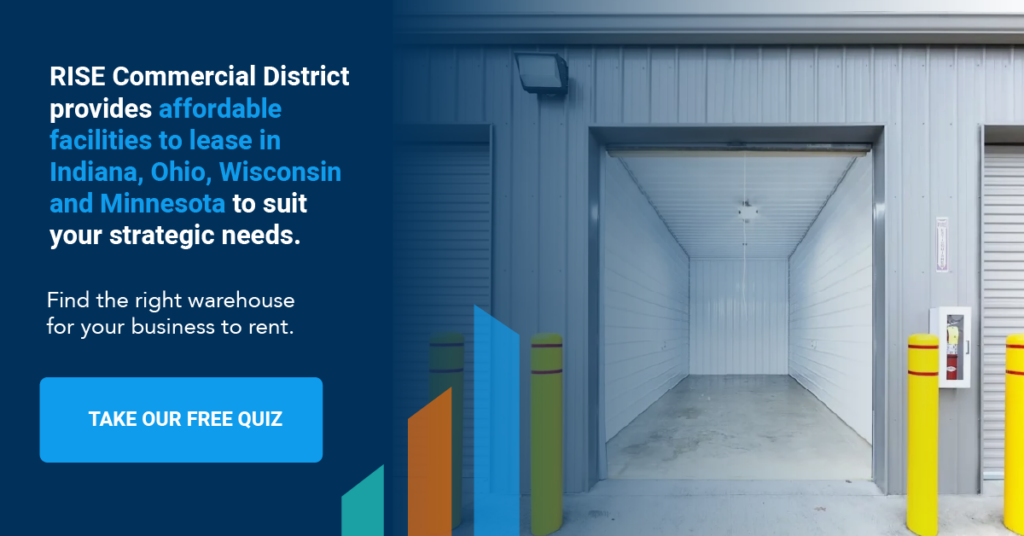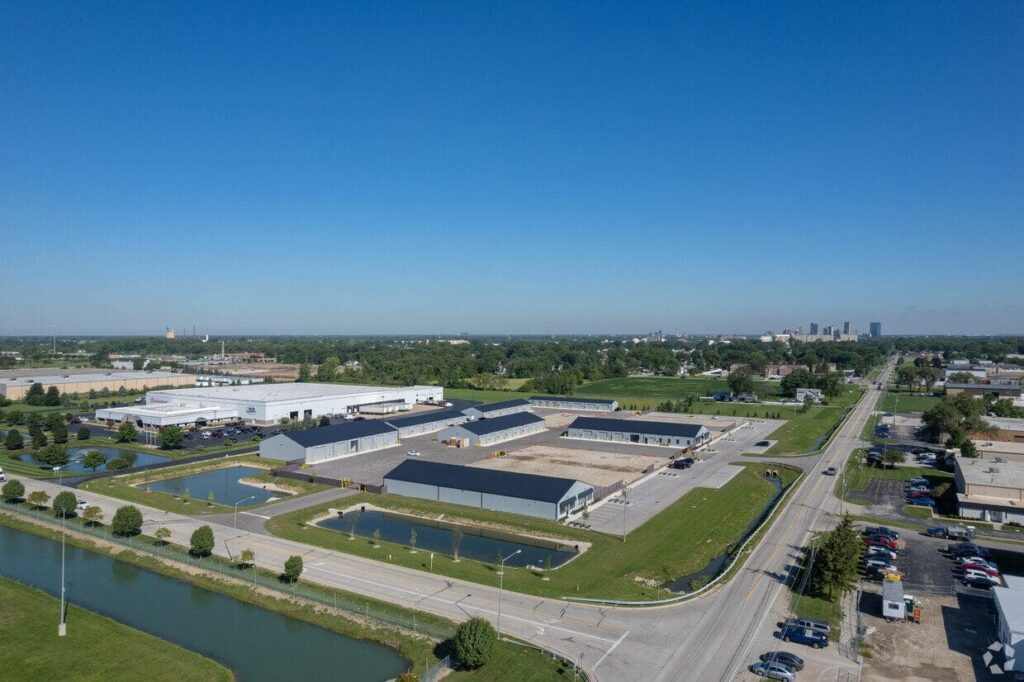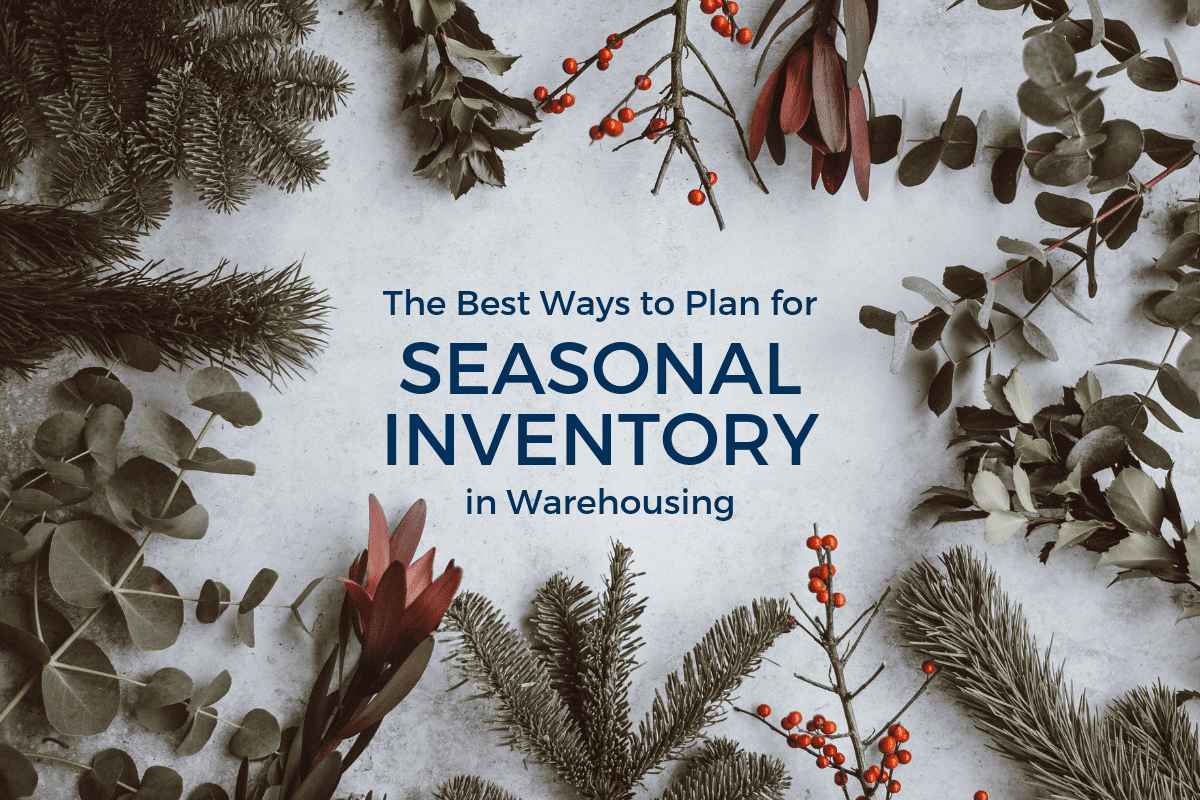- Counting The Costs Of Renting Vs. Buying
- Comparing Flexibility
- Considering Taxes
- Choosing The Right Location
- When Should You Buy Or Rent Warehouse Space?
- Rent A Warehouse From RISE Commercial District
If your business trades in goods, a warehouse can help streamline your logistics, speed up your service and increase your profits by allowing you to facilitate larger orders. However, once you decide your business needs a warehouse, you come to a fork in the road — to rent or to buy? Each has its pros and cons. This guide will help you understand your options and make an informed choice.
Counting the Costs of Renting vs. Buying

When deciding whether to rent or buy a warehouse for your business, the most important question is what each option will mean for your bottom line. The main issue here is cost. Renting and buying have different initial and ongoing costs.
The Costs of Buying a Warehouse
Buying a warehouse comes with much higher upfront costs than leasing. If you buy it outright, you’ll have to pay the full selling price. Paying all at once can be challenging to absorb into your cash flow. If you opt for financing, the down payment could still be substantial. Plus, you’ll have the installments with interest to cover as you pay it off. You’ll also be responsible for maintenance and repairs on the property, along with annual property taxes.
The Costs of Renting a Warehouse
Leasing a warehouse is your more affordable option in terms of upfront costs and monthly expenses. Your costs are limited to the lease deposit, monthly rent and utility bills. You may even be able to find a warehouse rental option that includes utilities in the rental price to further streamline your costs.
In the long run, it’s true that buying allows you to pay off your mortgage and have an asset to add to your balance sheet. However, leasing frees up capital and cash flow for your business immediately, with the potential to offset your modest monthly expenses through lasting growth.
Comparing Flexibility
In a dynamic business landscape, agility is essential to taking advantage of opportunities and pivoting in response to threats. Flexibility is one of the main benefits of leasing warehouse space. You have access to a wide array of options for lease lengths, locations and warehouse sizes.
Crucially, if you have a strategic opportunity or need to switch warehouse locations, leasing makes it easy to do that with adequate notice. Offloading a warehouse you’ve bought or are still repaying the bank for can be much more challenging.
Considering Taxes
When deciding whether to rent or buy, you should also consider the differing tax obligations and potential benefits.
Tax Pros and Cons of Buying Warehouse Space
If you buy a warehouse for your business, you’ll need to pay annual property taxes based on the property’s assessed value. In some locations, you may have to pay other taxes, too, such as an inventory tax. If you sell the warehouse, you may have to reckon with capital gains tax.
On the plus side, you can take advantage of deductions for depreciation and the interest on your mortgage payments.
Warehouse Rental Pros and Cons for Taxes
If you rent a warehouse, the tax situation is much simpler. Your landlord is responsible for property tax, though your rental fee will contribute toward this cost. You also have the freedom to relocate without worrying about hefty capital gains taxes from a property sale.
Financing a warehouse allows you to deduct the interest portion of your mortgage payments and the depreciation of the warehouse. When leasing, you can deduct your monthly rent as a business expense. Combined with the potential to leverage your warehouse for growing profits, this deduction can be a significant benefit to your business’s financial health.
Choosing the Right Location
Your warehouse location is an important strategic decision for your business. You should consider security and the location of your customers, suppliers and transport routes. Keep in mind that these factors can change over time.

Being closer to suppliers can reduce your costs and lead times, and being nearer to customers can speed up your service and boost customer satisfaction. You could also weigh the benefits of renting multiple smaller locations compared to leasing or buying one larger warehouse. Remember that location also influences a property’s price.
One of the most important warehouse rental advantages is renting makes it easier to access multiple strategic locations and move when necessary. You can assess locations that make sense for your business at each stage of its growth.
On the other hand, you’ll only enjoy the advantages of buying if you bet on a location that continues to make sense for your business years down the line. Leasing helps to minimize the risks of a location no longer suiting your operations.
When Should You Buy or Rent Warehouse Space?
Now that you understand the pros and cons of warehouse rental vs. buying for your business, you can make the decision that best suits your priorities and circumstances.
Consider buying a warehouse when:
- You have the capital reserves and cash flow to absorb the extra costs.
- You are confident that the location will remain strategically advantageous for many years.
- You want to strengthen your balance sheet by building equity in a business asset.
- You are open to taking on landlord responsibilities if using the warehouse for rental income is on the table.
Consider renting a warehouse when:
- You want to keep your monthly and annual costs lower.
- You appreciate keeping your tax obligations to a minimum.
- You prefer having more capital liquidity to take advantage of growth opportunities.
- You value flexibility to change locations based on market dynamics and strategic factors.
- You like having the option of using multiple warehouse locations without overspending.
- You have access to a rental warehouse that offers shared amenities and other benefits.
Rent a Small Warehouse From RISE Commercial District
If you’re interested in renting a small warehouse for your business, choose a space that will help you maximize your returns. RISE Commercial District provides affordable facilities to lease in Indiana, Ohio, Wisconsin and Minnesota to suit your strategic needs.

You get more than space when you rent with RISE. You get a partner committed to helping your business grow. We offer:
- Small, medium and large facilities across four states.
- Free forklift access for easy shipping and receiving.
- Utilities that are included in your lease.
- 24/7 surveillance, fences and gates to protect your inventory.
- Flexible lease terms so you can scale up or down as your business develops.
- Free and fast Wi-Fi at all our facilities.
- Access to shared amenities, including dumpsters, restrooms, a kitchen and a conference room.
Take our free quiz today to find the right warehouse for your business to rent.



